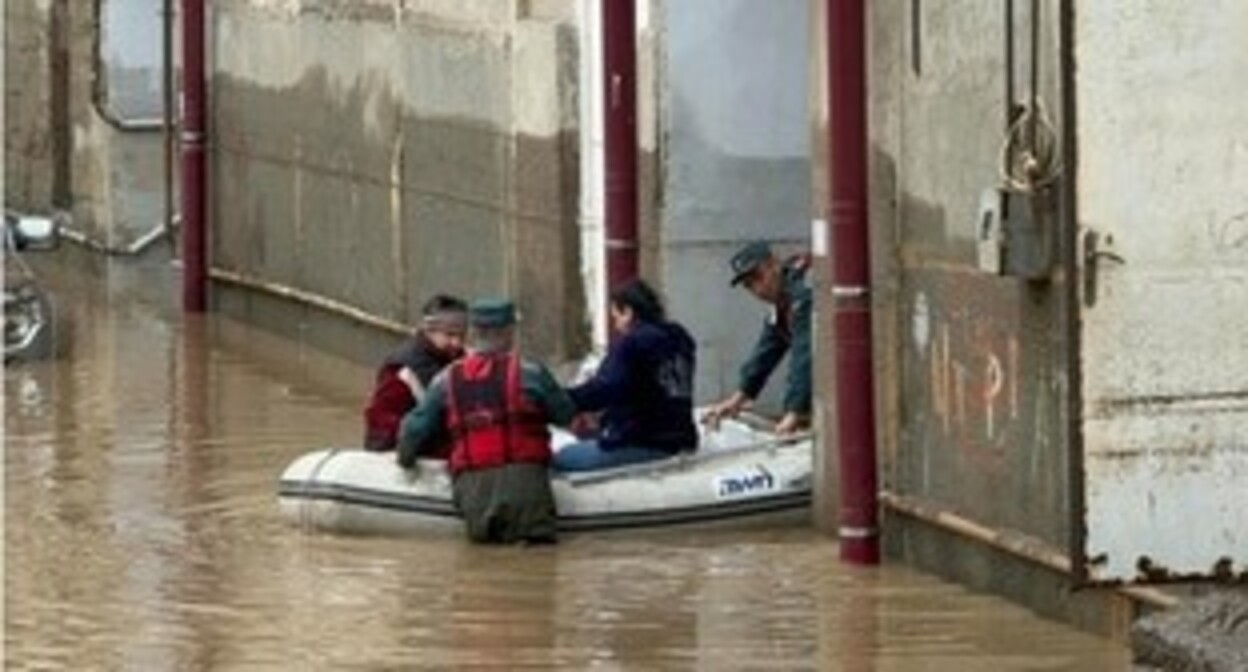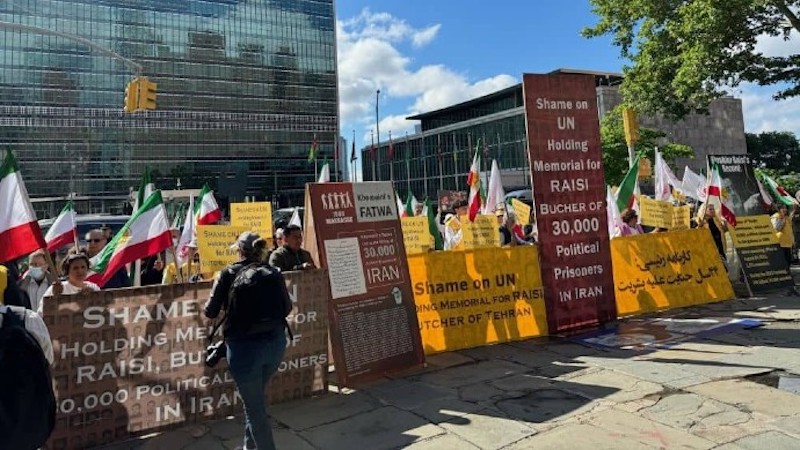
Caucasian Knot
By Amir Iraji
Overpopulation has been a concern for a long time, sparking debates about humanity’s future, resource scarcity, and environmental degradation. The temptation to resort to centralized control measures is significant. However, a closer examination reveals two major problems with such an approach.
The violation of individual rights is the first issue. As Murray Rothbard explains in ‘The Ethics Of Liberty,’ individuals have an inherent right to own themselves and their property. Any violation of this right is unethical and unjust. Therefore, no entity, be it an individual or an organization, should have the authority to claim ownership over the entire human population and dictate its size.
We’ve seen the devastating effects of ignoring this ethical principle throughout history, with authoritarian regimes implementing harsh measures in the name of population control. These actions have led to violations of individual rights and immense human suffering, including forced sterilizations and coercive family planning policies.
Consider the story of “The Population Bomb,” a book published in 1968 that predicted dire consequences if population growth was not immediately curbed. However, the book’s predictions failed to materialize, largely because they did not account for the innovation and entrepreneurial solutions that humans can generate. This failure underscores the inadequacy of centralized power in addressing the complexities of population dynamics.
This brings us to the second problem, as Friedrich Hayek explained in his renowned essay ‘The use of knowledge in society’. In this essay he highlights the challenge of centralized planning due to the dispersed nature of information in society. He argues that central authorities lack the necessary knowledge to make optimal decisions for everyone. Instead, decentralized decision-making and the price mechanism can allocate resources more efficiently based on individuals’ localized knowledge and preferences. This emphasizes the superiority of market-based solutions over top-down planning in addressing societal challenges.
But is deciding the human population’s size an economic issue? Do Hayek’s insights apply to this? Contrary to what many might assume, economics is not just about money or financial transactions; it encompasses the study of human action in the face of scarcity. Population decisions involve individuals and families making choices about resource allocation, consumption patterns, and future planning. These decisions have profound economic implications, as they determine labor supply, demand for goods and services, and the distribution of wealth and resources within a society.
Population dynamics not only influence productivity, innovation, and economic growth over time but also serve as catalysts for entrepreneurial action, constantly creating new information and solutions. As individuals and families navigate decisions regarding resource allocation, consumption patterns, and future planning, they engage in entrepreneurial endeavors that address emerging challenges, including environmental concerns. Understanding how these decisions are made within the framework of decentralized knowledge and market signals is crucial for comprehending the broader economic landscape. Entrepreneurial solutions play a pivotal role in this process, driving adaptation and innovation in response to changing population dynamics and market demands.
That’s why while interventionism may not seem to be tyrannical and terrifying, it causes problems by distorting market signals and blocking essential information and can lead to harmful results. For example, in the case of population, subsidies and social programs artificially cushion individuals from the true costs of their decisions, which makes it impossible to calculate the price of having children and all possible alternatives, disrupting the natural feedback mechanisms of the market. This distortion prevents the market from effectively coordinating human action, leading to the potential for both overpopulation and underpopulation.
But it doesn’t end there; intervention-induced distortion triggers a relentless cycle of population issues and governmental meddling. China serves as a poignant example of this cycle, where the one-child policy initially aimed at controlling population growth led to unintended consequences, including a rapidly aging population and negative population growth. And now their solution to this new problem that was created by intervention is more intervention, without considering the possibility that the new interventions could lead to new unintended consequences.
The tale of “The Population Bomb” and other similar failed predictions demonstrate that no centralized power possesses the necessary knowledge to determine the optimal size of the human population.
In conclusion, the debate surrounding overpopulation underscores the need for a reevaluation of centralized approaches in favor of decentralized solutions rooted in individual freedom and market principles. By rejecting top-down interventions that infringe on individual rights and fail to address the complexities of population dynamics, we pave the way for a more ethical and effective approach to managing population challenges.
Entrepreneurial action, driven by decentralized knowledge and market signals, plays a crucial role in addressing not only population concerns but also broader societal issues, including environmental sustainability. By empowering individuals to make decisions for themselves, we foster innovation, adaptation, and resilience in the face of evolving demographic trends.
As we navigate the complexities of population growth, let us embrace the principles of liberty and free enterprise, recognizing that true progress lies in the hands of individuals, not centralized authorities. By doing so, we can forge a path toward a future where human dignity and prosperity are preserved for generations to come.

After news broke that the United Nations would hold a ceremony for Ebrahim Raisi, the “Butcher of 1988” on Thursday, May 30, a flood of protest messages from around the world was unleashed against this shameful act. On this day, supporters of the Iranian Resistance and freedom-loving Iranians abroad gathered in front of the United Nations headquarters in New York and set up an exhibition of images of the fallen martyrs, expressing the anger and hatred of all Iranians against this disgraceful program.
Freedom-loving Iranians raised placards and banners displaying 43 years of the regime’s crimes, especially those of the “Butcher of 1988,” and with slogans of “Shame! Shame! Shame! Shame on this deal!” echoed the voices of millions of Iranians and the bereaved families of the martyrs in the streets of New York.
A day earlier, Iranian Resistance supporters in the streets of New York and in front of the United Nations displayed large images of the martyrs of the 1988 massacre and scenes of the regime’s crimes on the sides of trucks, accompanied by enlightening slogans condemning the United Nations’ disgraceful decision.
Amidst strong protests from compatriots and widespread global outrage against the shameful condolences and the United Nations’ planning to commemorate Raisi, the “Butcher of 1988,” as the President of Iran, 45 current and former UN ambassadors and officials, including senior judges and experts, wrote an open letter to the UN Secretary-General, which read in part, “As current and former United Nations Ambassadors, experts, and officials, we are deeply alarmed by the General Assembly’s planned tribute on 30 May 2024 to the President of Iran, Ebrahim Raisi, who was killed in a helicopter crash on 19 May 2024.
“Over four decades, Raisi participated in or oversaw grave human rights violations, including the enforced disappearance and extrajudicial execution of thousands of political prisoners in the 1980s. He was a key member of the ‘Death Commissions’ responsible for the 1988 massacre of as many as 30,000 political prisoners, earning him the nickname ‘Butcher of Tehran’. In recent years, as Judiciary Chief and later President, he directed deadly crackdowns on anti-government protesters, with 1,500 and 700 killed during the 2019 and 2022 uprisings respectively. He oversaw the violent persecution of women and girls defying compulsory veiling.”
On May 23, during a hearing of the Deputy Secretary of State at the US House Foreign Affairs Committee, senior Democratic member Brad Sherman condemned the US condolences and the UN Security Council’s decision for a moment of silence, saying: “Unfortunately, the Security Council decided for a moment of silence in mourning his death… Few have murdered as many thousands of people… I hope you suggest to Linda Thomas-Greenfield (U.S. Ambassador to the United Nations) that at an appropriate time, in the Security Council, there be a moment of silence for the families of those whom Ebrahim Raisi sentenced to death, 30,000 of them in 1988, the 1,500 in 2019, the Bloody November, and the many others who are victims of his bloodstained hands.”
Following the intensification of protests, Reuters quoted a US official as saying, “We won’t attend this event in any capacity… Some of the worst human rights abuses on record, especially against the women and girls of Iran, took place during his tenure.”
On the morning of May 30, Australian Senator Claire Chandler issued a statement in which she emphasized that “many of the worst human rights abuses on record occurred during [Raisi’s] tenure in various positions of power, including the extrajudicial killings of thousands of political prisoners in 1988” and called on the Australian government to “refuse to participate in memorialising the Butcher of Tehran.”
Irene Victoria Massimino, an international human rights lawyer and UN Special Rapporteur at the Argentine High Criminal Court, also wrote in an article in Townhall, referring to Khomeini’s fatwa for the massacre of all steadfast PMOI members: ” At the time, Ebrahim Raisi, serving as Deputy Tehran Prosecutor, was appointed to the “death commission” tasked with enforcing this fatwa in Evin and Gohardasht Prisons. Along with three colleagues, he systematically interrogated political prisoners, particularly those affiliated with the People’s Mojahedin Organization of Iran (PMOI/MEK) and issued execution orders in as little as one minute… To cooperate in honoring such a man cannot be construed as anything other than collective disrespect for human rights and fundamental freedoms. No member state that respects the UN Charter should participate in a service that memorializes a murderous head of state at the expense of his victims. The democratic nations of the world must boycott the event and impress upon the UN leadership that if they go forward with it, they demonstrate contempt for their own core principles. ”
Thus, the blood of the martyrs and the cries of protests from the rebels, from the streets of Iran to the front of the United Nations headquarters, discredited the ceremony for the “Butcher of 1988” at the UN. This program, with empty seats and widespread condemnation, had the opposite effect, bringing double disgrace to the regime of massacres.